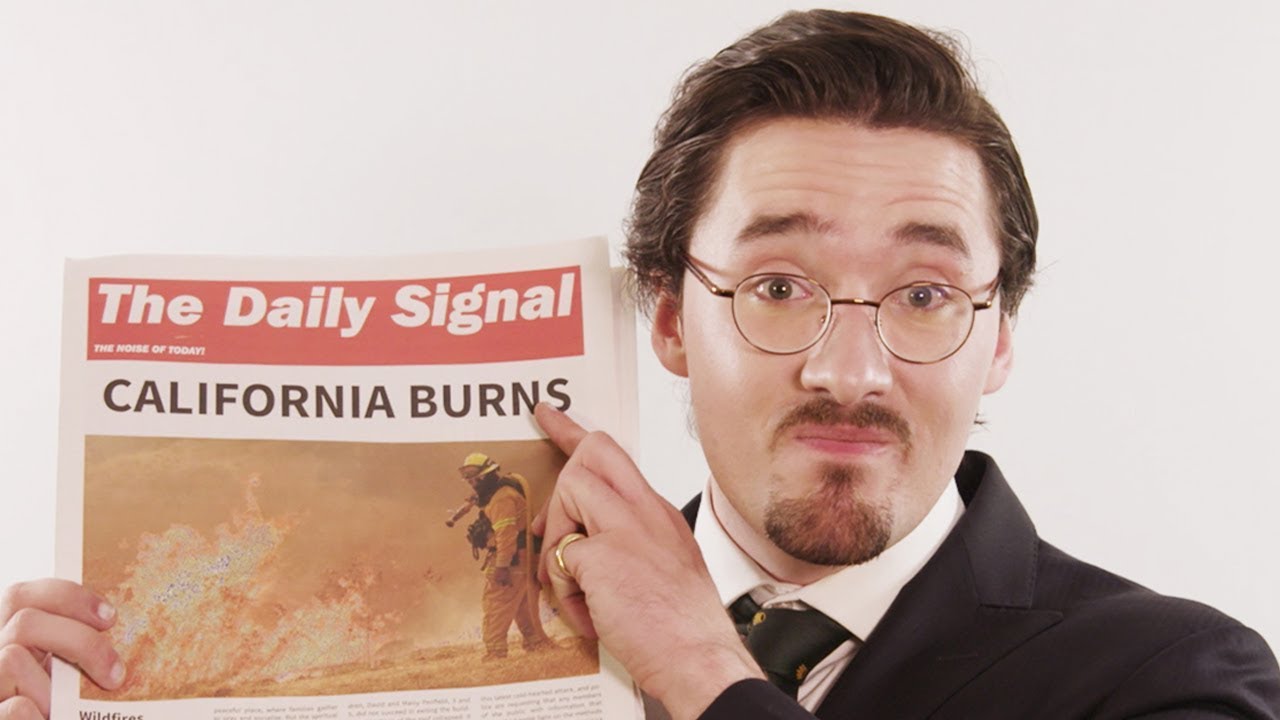Crack Down On New Climate Denial! Nonprofit tells YouTube
Summary
TLDRThe Center for Countering Digital Hate's new report finds 'outright denial' of climate change has declined on YouTube, but 'new denial' minimizing climate change or dismissing climate science has risen to 70% of denial content. They recommend YouTube update policies to forbid content contradicting scientific consensus on climate change's 'causes, impacts, and solutions,' not just its existence. The creator argues this risks censoring reasonable opinions; better to combat misinformation with facts. Though psychological studies suggest this is often ineffective, the decline of outright denial indicates facts do change minds.
Takeaways
- 😀 The Center for Countering Digital Hate released a new report warning that climate misinformation continues to spread on YouTube.
- 😕 Outright climate change denial has declined. Instead, most misinformation now falls under 'new denial' - acknowledging climate change but downplaying it.
- 🤔 New denial makes up 70% of climate denial claims on YouTube now, up from 35% six years ago.
- 😠 YouTube makes over $13 million per year from monetized climate misinformation videos.
- 😡 The Center calls on YouTube to expand its climate misinformation policy to cover 'impacts' and 'solutions' too.
- 😕 The Center's proposed policy risks censoring opinions, not just misinformation.
- 🤨 Bans and demonetization may not effectively curb misinformation due to viewer demand.
- 😌 The best way to combat misinformation is with reliable information, though it's hard to change minds.
- 😕 Misinformation is a difficult problem, and will likely get worse with more advanced AI.
- 🤔 Emoji Comments and advice are welcomed on potential solutions!
Q & A
What is the main finding of the report by the Center for Countering Digital Hate regarding climate misinformation on YouTube?
-The report found that outright climate change denial has declined on YouTube, but "new denial" claims have risen sharply, now making up 70% of climate denial content. New denial acknowledges climate change is happening but claims it's not worrying, we can't do anything about it, or dismisses climate science and scientists.
What does the Center for Countering Digital Hate recommend YouTube do about climate misinformation?
-They recommend YouTube update its policy to explicitly disallow content that contradicts the scientific consensus on the causes, impacts, and solutions to climate change. They also recommend more demonetization of such content.
What does the creator of the video think about the proposed policy changes by the Center for Countering Digital Hate?
-He thinks banning opinions about climate change solutions and impacts, not just facts, goes too far by restricting free speech and debate. He believes the problem is more on the demand side - people wanting misinformation - rather than the supply side.
Why does the creator think old-style outright climate denial has declined on YouTube?
-He thinks the evidence for climate change has simply become too strong to ignore now. He doesn't believe monetization policies are the main reason, as a similar shift has happened on Twitter.
What does the creator see as the root cause of demand for climate misinformation?
-He believes many people subconsciously want information, however unsound, that confirms beliefs and conclusions they hold dear. Bans and demonetization won't fix this underlying demand.
What solution does the creator propose to combat climate misinformation?
-He believes the best solution is to meet misinformation with factual information and education. Though he is skeptical bans and monetization changes will help much.
Why does the creator doubt psychological studies showing people rarely change views when presented with new information?
-He is somewhat skeptical about the reliability of such psychological studies in general. Also, the very fact old climate denial is declining shows people can and do update views when confronted with facts.
Why does the creator predict the misinformation problem will likely get worse?
-Because more advanced AI tools are becoming available that can spread customized misinformation more easily and convincingly.
What does the creator see as the main advantage of ads for misinforming content creators rather than viewers?
-Ads target the viewer's interests and preferences, not the actual content, so brands don't have to worry about association with disliked content - viewers have already self-selected by clicking.
Does the creator see any solutions to the climate misinformation problem that he thinks would be effective?
-No, he openly states that he does not have a good solution himself to this difficult issue, and hopes that someone else knows an effective approach.
Outlines

Cette section est réservée aux utilisateurs payants. Améliorez votre compte pour accéder à cette section.
Améliorer maintenantMindmap

Cette section est réservée aux utilisateurs payants. Améliorez votre compte pour accéder à cette section.
Améliorer maintenantKeywords

Cette section est réservée aux utilisateurs payants. Améliorez votre compte pour accéder à cette section.
Améliorer maintenantHighlights

Cette section est réservée aux utilisateurs payants. Améliorez votre compte pour accéder à cette section.
Améliorer maintenantTranscripts

Cette section est réservée aux utilisateurs payants. Améliorez votre compte pour accéder à cette section.
Améliorer maintenantVoir Plus de Vidéos Connexes

Climate deniers don't deny climate change any more

Kamala Harris and Climate Change: Hope or Hype?

A Controversial Play — and What It Taught Me About the Psychology of Climate | David Finnigan | TED

Aquecimento global: 4 afirmações sobre as mudanças climáticas que a ciência desmentiu

Climate Grief | Philosophy Tube

A Message From the Future With Alexandria Ocasio Cortez AOC
5.0 / 5 (0 votes)
